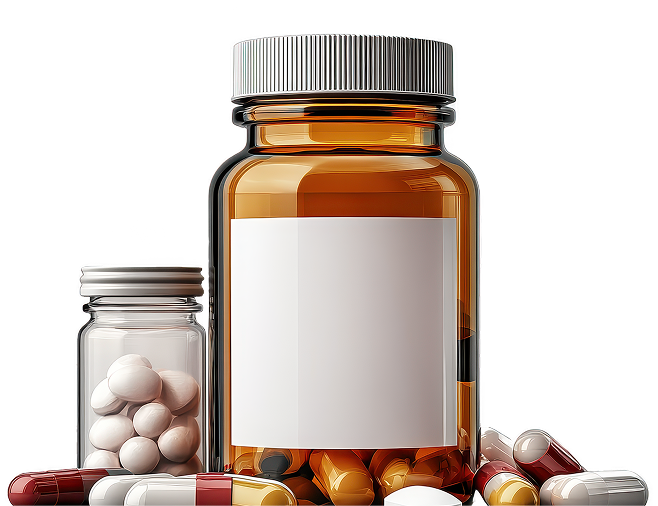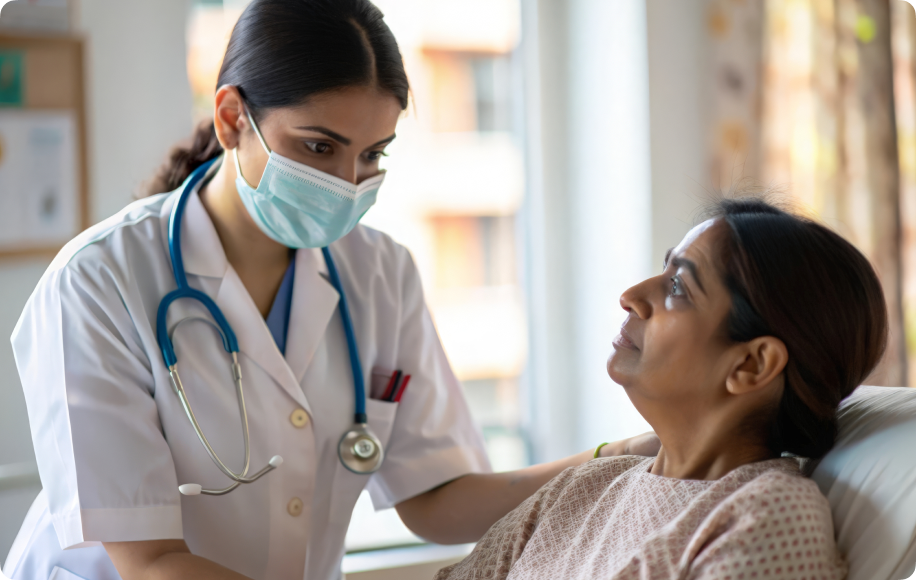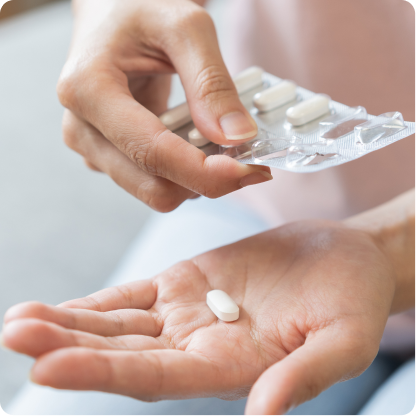How do you treat typhoid?
Timely treatment leads to a smoother and complete recovery.

Typhoid fever is typically treated effectively with antibiotics. Typhoid treatment should start as soon as you are diagnosed since delays can increase the risk of complications.[1] With prompt treatment, people usually recover within 6-7 days, but delays in treatment can lead to prolonged fever for weeks or months. Some people who recover from typhoid fever continue to shed the bacteria and become chronic carriers of Salmonella typhi.[2]
Though typically treated with antibiotics, indiscriminate use and non-compliance are increasing antimicrobial resistance (AMR) to different types of antibiotics, resulting in a more complicated and costly treatment, adding to the financial burden of medical care.[3]
Antibiotics
Antibiotics are part of the essential typhoid medicines used to treat typhoid fever. Accurate diagnosis and necessary compliance with a doctor’s prescription are required for safe and effective treatment.
It is crucial to finish the full course of antibiotics prescribed by your doctor. Not completing the required dosage may lead to inadequate response, relapses and additional complications.[3]
Without appropriate antibiotics, the fever may last for 3 to 4 weeks. With treatment, symptoms usually improve within 6 to 7 days.[4] However, fatigue and weakness may persist for days after symptoms have subsided.

Antimicrobial resistance

One of the most pressing global health issues is the rise of antimicrobial resistance or AMR.
Antimicrobials are medicines that are used to fight infections. Antimicrobial resistance (AMR) happens when these medicines, which were effective so far, become ineffective in the treatment of infections, increasing the risk of the disease spreading and leading to severe illness or even death. It puts the benefits of modern medicine at risk.[5]
Unfortunately, like many other bacteria, Salmonella typhi is also becoming increasingly resistant to antibiotics. This problem is made much worse by the appearance and global spread of a type of Salmonella typhi that is extensively drug-resistant (XDR) to 1st and 2nd line of antibiotics.[6]
A major reason for antibiotic resistance is the misuse, overuse, under-dosing , incomplete duration, over-the-counter purchase without a valid prescription and other such misuse of these drugs in humans, animals and farming. Worldwide use of antibiotics went up by 65% between 2000 and 2015, especially in low and middle-income countries like India. Without appropriate action, it’s expected to triple by 2030 (compared to 2015).[7]
The consequences of AMR
With the rise of antimicrobial resistant Salmonella typhi, treatment with common antibiotics and other medicines eventually become ineffective. The emergence of such resistant strains makes it more challenging to manage the symptoms of typhoid fever, making treatment more complicated and expensive.[7] While new antimicrobials continue to be developed, bacterial resistance develops faster.[1]

However, VACCINATION HELPS PREVENT
the development of new drug-resistant strains.[6]
Vaccines are a powerful tool in the fight against antibiotic resistance. Vaccines can train your immune system to fight pathogens even before the infection begins. People who have taken vaccines tend to have fewer infections, leading to fewer antimicrobial prescriptions, and are therefore well protected against complications as well.[7]
Care at home
Along with the prescribed medication and treatment from your doctor, here are a few things you can follow at home:[3,8]

Continue taking your prescribed medication for as long as recommended by your doctor.

Wash your hands thoroughly with soap and water after using the washroom, while cooking or serving food, and before eating.

Stay hydrated by drinking more fluids, which are available at home.
Following these steps can reduce the risk of spreading the infection.
Hospitalisation
For milder cases of typhoid fever, good sanitation and hygiene practices, along with the prescribed medicines, are sufficient to recover from typhoid. However, if the fever persists and the patient looks sick or dehydrated, then hospitalisation is recommended.
Resources
- https://www.ncbi.nlm.nih.gov/books/NBK557513/
- https://oklahoma.gov/health/health-education/acute-disease-service/disease-information/typhoid-fever.html
- https://www.who.int/news-room/fact-sheets/detail/typhoid
- https://www.health.nsw.gov.au/Infectious/controlguideline/Pages/typhoid.aspx
- https://www.who.int/news-room/fact-sheets/detail/antimicrobial-resistance
- https://pmc.ncbi.nlm.nih.gov/articles/PMC10236512/
- https://www.who.int/publications/i/item/9789240098787
- https://www.healthdirect.gov.au/typhoid-and-paratyphoid
Disclaimer: A public awareness initiative by Bharat Biotech International Limited. This information is for general awareness only and does not constitute medical advice. The doctors, medical facilities and graphics shown are for illustrative purposes only. For any medical advice or any question or concern you may have regarding your condition, consult your doctor.